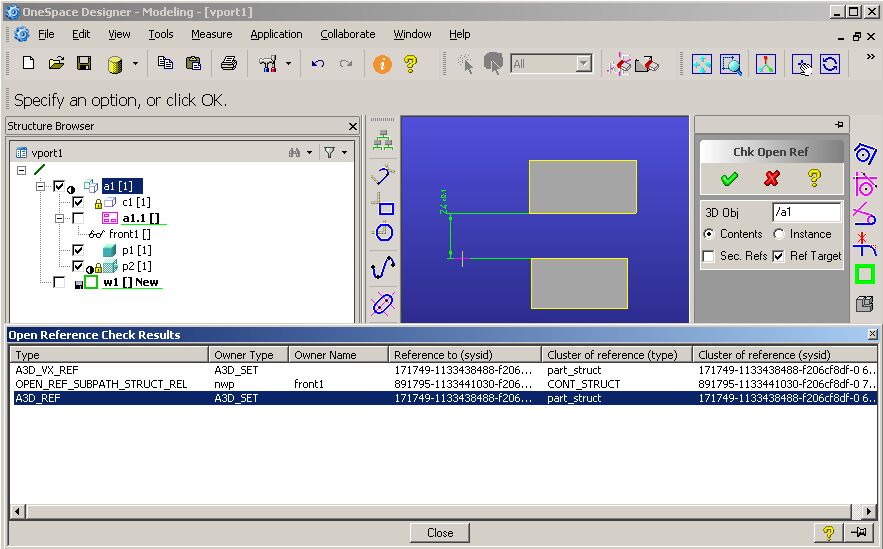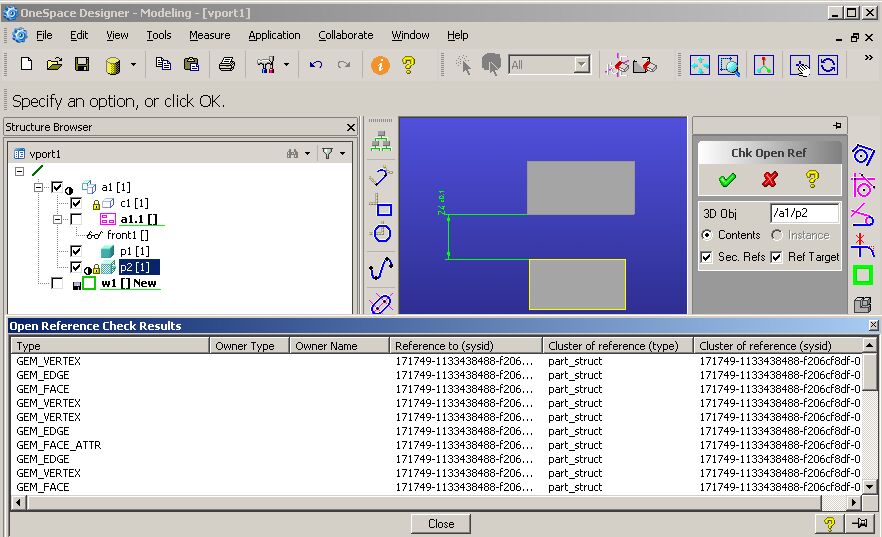The Check Open Reference tool can be used to analyse open references.
Open References are references which cannot be resolved because their target object is currently unavailable. In elder releases of Creo Elements/Direct Modeling (versions < 12.00) such lost references would have resulted in untouchables, preventing any further operations on the part/assembly. With open reference handling the reference is kept "in limbo" until the missing anchor appears, which then allows the reference to be resolved, or to "snap in".
Display of open reference icons in the structure browser is disabled by default. To view the icon select the "Open References" option from the structure browser properties menu.
|
|
|
Enter into command line
(load "chk_open_ref")
Or add this line to your customization file.
Loading this file will create a button in the toolbox.
This tool is meant to provide help in analyzing missing references. Select the part/assembly which is to be analyzed. Per owner (i.e. contents or child instance), a list of all open references is displayed in a table.

Additional information about the missing targets is displayed when the "Ref Target" option is selected. This option displays the sysid of the missing target and the sysid of the part/assembly where the target lives. Reloading the part/assembly containing the target will resolve the open reference.
In the above example assembly "A1" has open references. The affected entities are 3D annotations and layouts. The missing references are in the part and container whose the sysid's displayed in the table. The table shows that the "front" view of the layout has open references. A component referenced by this view is in the container which has been partially loaded. The other entries specifies that a 3D annotation reference is missing from the loaded part.

"Secondary Refs" only appear when their related primary reference has also lost its target. This is for example the case with CLUSTER_PATHs being dependent on REF_PATHs. In addition graphical attributes are displayed when the "Secondary Refs" option is selected in the dialog.
In the above example, the part "P2" is loaded as a lightweight part, hence all its geometry is missing. All references to the original geometry will be retained and resolved once the geometry reappears.
The types of the references are derived from their internal names. The table provides a list of translations for the most important entity types.
| Type | Colloquial Name |
|---|---|
| DC_SET | Relation set |
| A3D_SET | 3D annotation |
| CUST_FEAT | Custom feature |
| subpath_struct | Layout component list |
| NPARCEL | Selective instance |
| GEM_FACE | Geometry |
| GEM_FACE_ATTR | Face Attributes |
| © 2024 Parametric
Technology GmbH (a subsidiary of PTC Inc.), All Rights Reserved |